Germany & Lithuania Technical Expedition: EPR + DRS Reuse & Refill (2023)
In October 2023, the Ocean Plastics Leadership Network (OPLN) hosted a five-day, multi-stakeholder, immersive tour of two of Europe’s best performing systems for packaging recovery, powered by extended producer responsibility (EPR), deposit return schemes (DRS), reuse and refill. This five-day exhibition, from October 15th to 20th, brought together 30 participants representing major organizations across the packaging value chain (from material producers, packaging converters, top brands, major retailers, waste management, recyclers and leading environmental organizations). The technical expedition aimed to foster collaboration, powered by experiential learning, to advance policy harmonization on EPR & DRS across the US among Fortune 500 sustainability leaders, policy makers, leading NGOs and government officials.

Why Germany & Lithuania?
Systems in Germany and Lithuania were selected to demonstrate the impact of economic factors, population size, and density on the performance, infrastructure, and costs of these systems. This comparison yielded insights applicable to the diverse landscapes across the United States.
Germany: mature systems
- Legislation: EPR (1991) and DRS (2003)
- Population: 83.2 million; GDP: US$ 4.26 trillion
- Comparison: Southeast Region in the U.S
Lithuania: newer systems
- Legislation: EPR (2001) and DRS (2016)
- Population: 2.9 million, GDP of US$ 66.45 billion
- Comparison: smaller, rural states of the U.S.
The goal was to explore one of Europe's most mature and advanced systems alongside a relatively new system in order to understand the factors that influenced their efficiency and effectiveness.
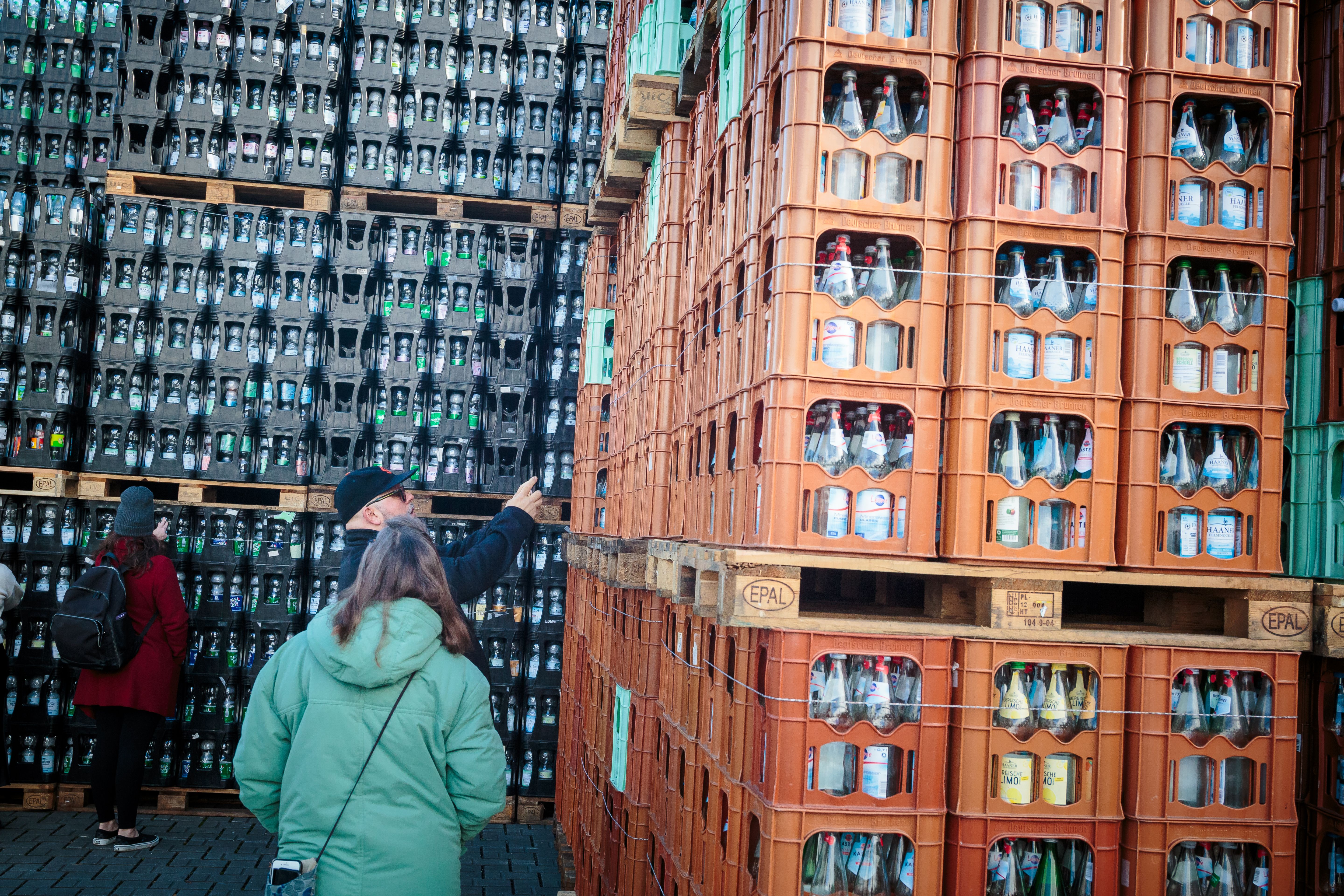
Embark on a virtual tour to immerse yourself in the group's collective learning and to celebrate the great work of the organizations that hosted us:

The expedition commenced with a scenic welcome reception and Cologne City Boat Tour where participants reflected on why financial mechanisms to improve recycling systems, such as EPR and DRS, are important. Both Germany and Lithuania have demonstrated impressive performance keeping valuable packaging resources in circulation in the economy and out of the environment as litter, which is acutely important in aquatic environments.
While navigating down the River Rhine, Texans for Clean Water provided a keynote address contextualizing the boat trip and the ambition of the expedition: to harmonize efforts across key players in the packaging value chain in the US with best practices underway in Europe to protect one of our most valuable global commons, clean water.

On day 2, technical discussions kicked off at GreenDot’s Duales System Deutschland GmbH (DSD), the pioneering force behind the world's first Extended Producer Responsibility (EPR) scheme in 1990. Over the past three decades, GreenDot has revolutionized packaging recycling through its 'dual system,' complementing municipal waste collection and spearheading innovations in packaging-to-packaging solutions globally. The evolution of the German EPR legislative framework and GreenDot’s business model showcased a commitment to sustainable practices.
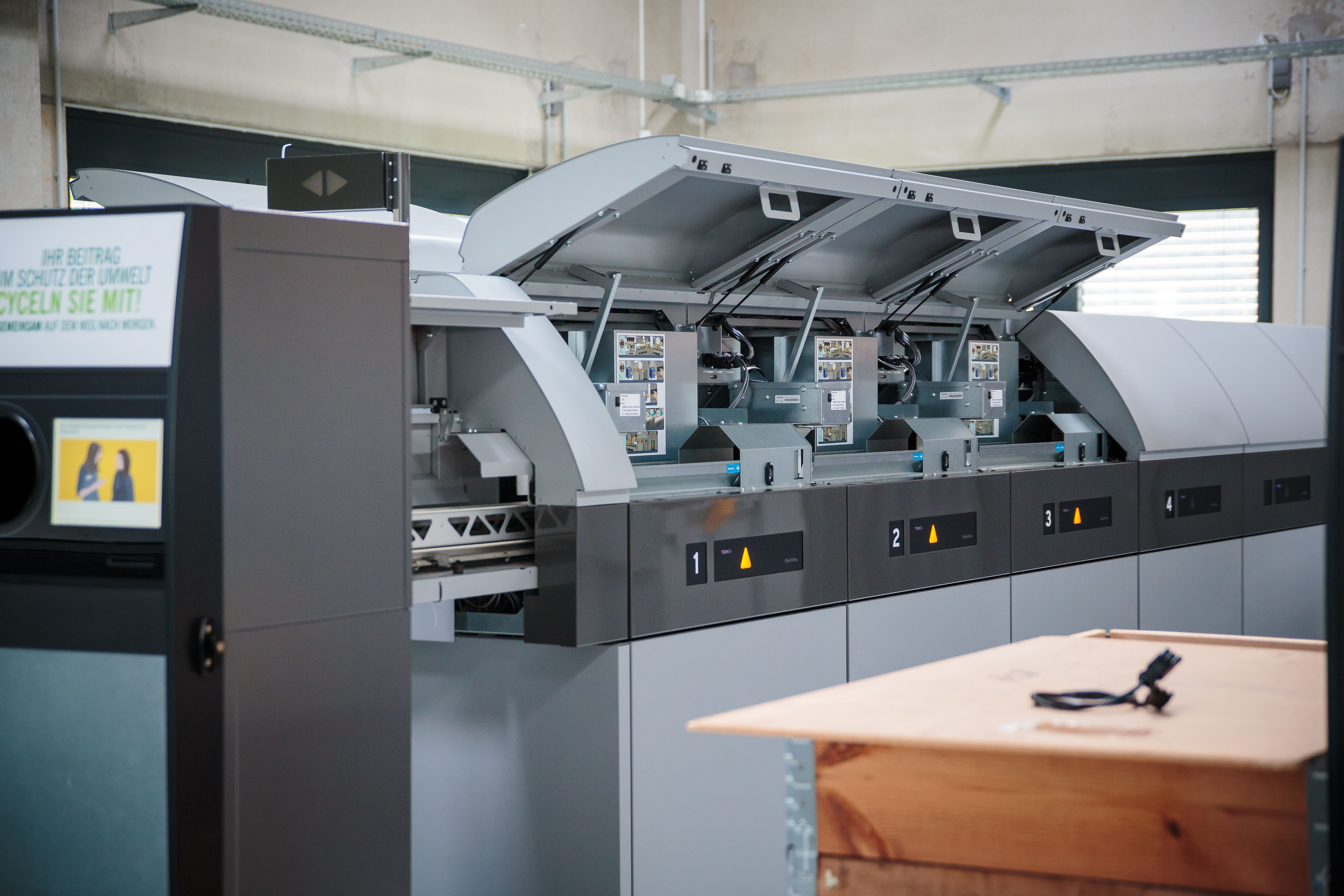
The agenda then shifted to Deutsche Pfandsystem GmbH (DPG), a key player in the German Packaging Act. DPG facilitates a Deposit Return System (DRS) for one-way beverage containers made from plastic, glass, and metal, with a remarkable 98% return rate in 2019. Central to the DRS are TOMRA's reverse vending machines (RVMs), observed in action at major retailer Kaufland. These machines, with an average transaction time of less than 1 minute, showcased a seamless consumer interface, emphasizing the importance of efficient recycling processes in the journey from consumer return to container reuse, highlighting the sustainability loop in action.
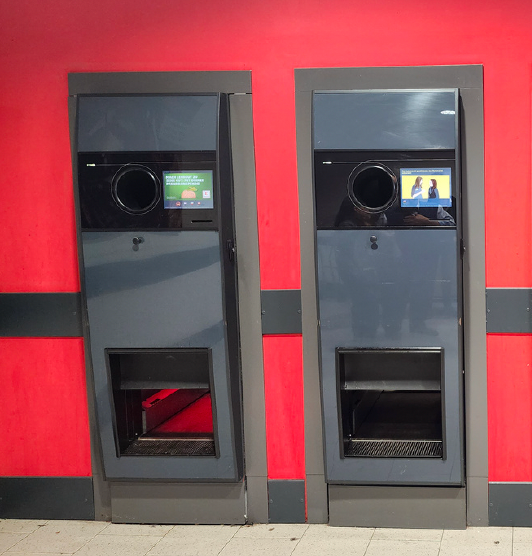
Day three commenced with a visit to German Wells Cooperative (GDB), a dynamic trading company overseeing the largest reusable system in Germany. Managing billions of closures, liters of raw materials, and various packaging components, GDB is the institution behind the iconic pearl bottle. Despite its widespread recognition, GDB maintains a low public profile, focusing on supporting member companies for economic success.
The next destination was Haaner Felsenquelle, a regional mineral water bottler offering both single-use and refillable products. The tour emphasized the economic viability of reverse logistics for small-medium enterprises, highlighting the importance of regional markets in fostering the business case, especially for manufacturers with bespoke packaging preferences.
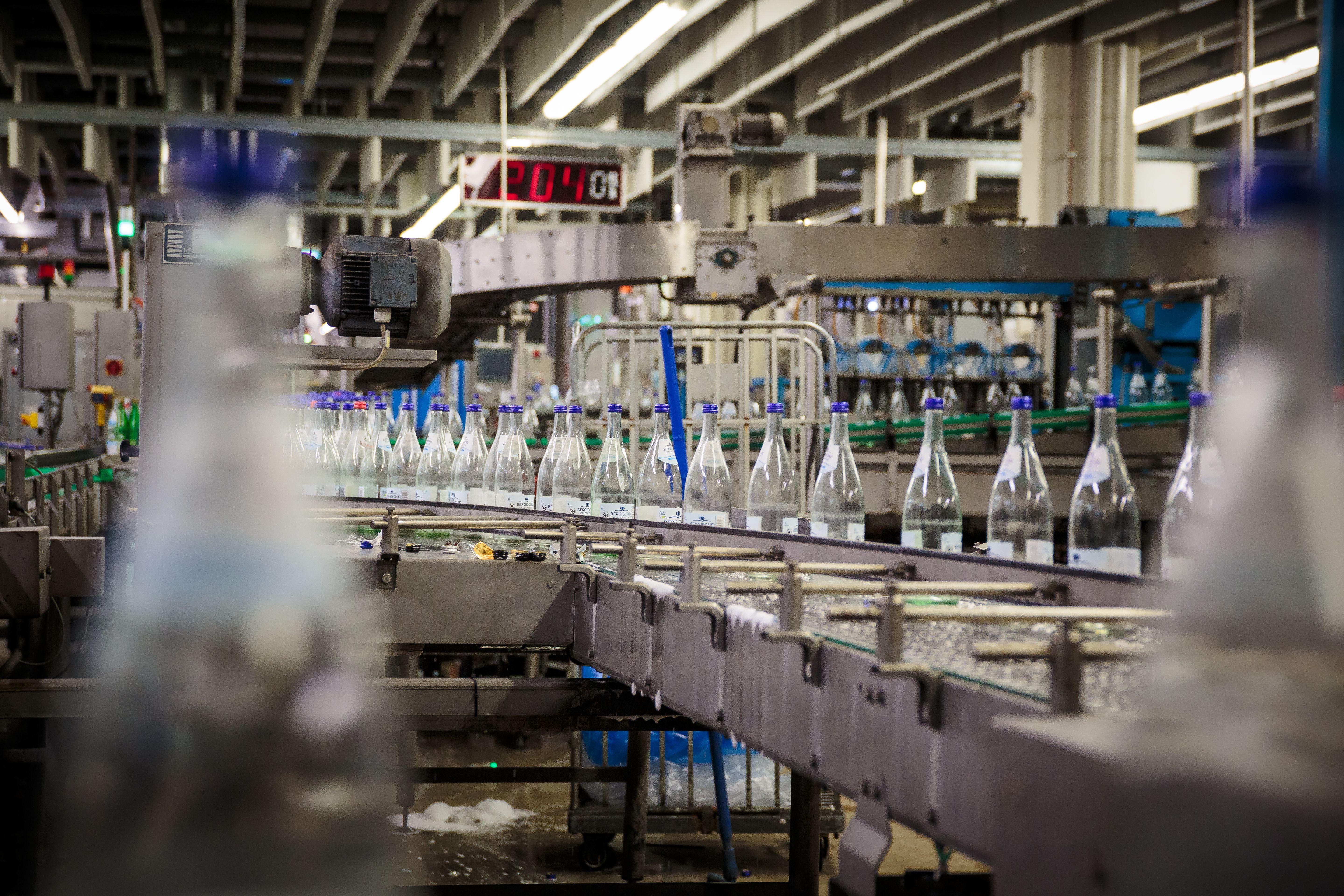
The exploration continued at Hündgen Entsorgung Sorting Plant in Swisttal, Germany, a family-owned facility specializing in recovering diverse packaging materials through Germany's EPR scheme. Leveraging artificial intelligence, robotics, and innovative approaches, the plant optimizes sorting lines to recover conventionally hard-to-recycle materials.
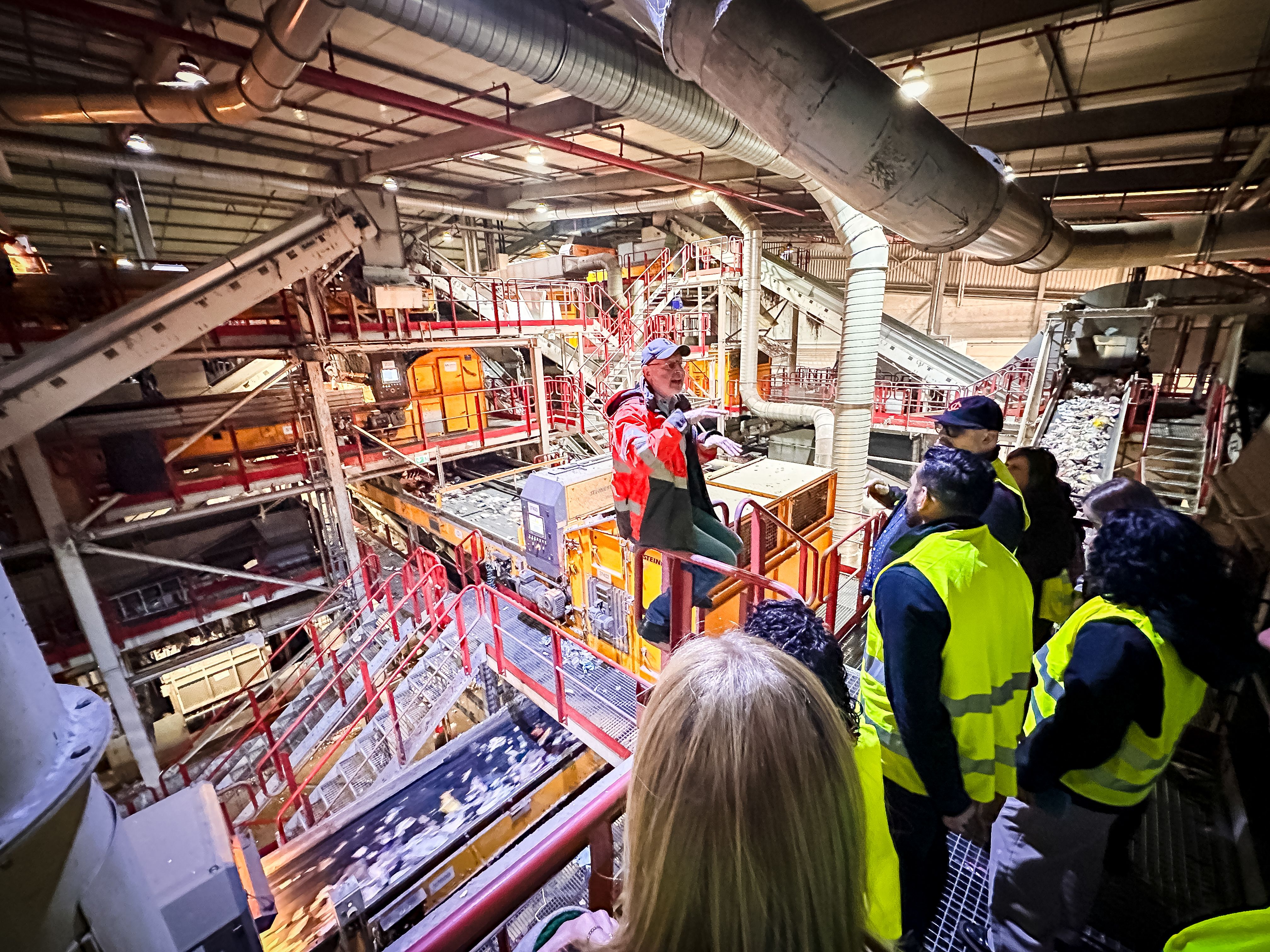
Participants gained a comprehensive understanding of the value chain in EPR, Deposit Return Systems (DRS), and refill systems globally, leaving Frankfurt with newfound expertise on the potential synergy of these systems and the essential enablers for a thriving market responsive to stakeholder needs. Next stop, Lithuania!
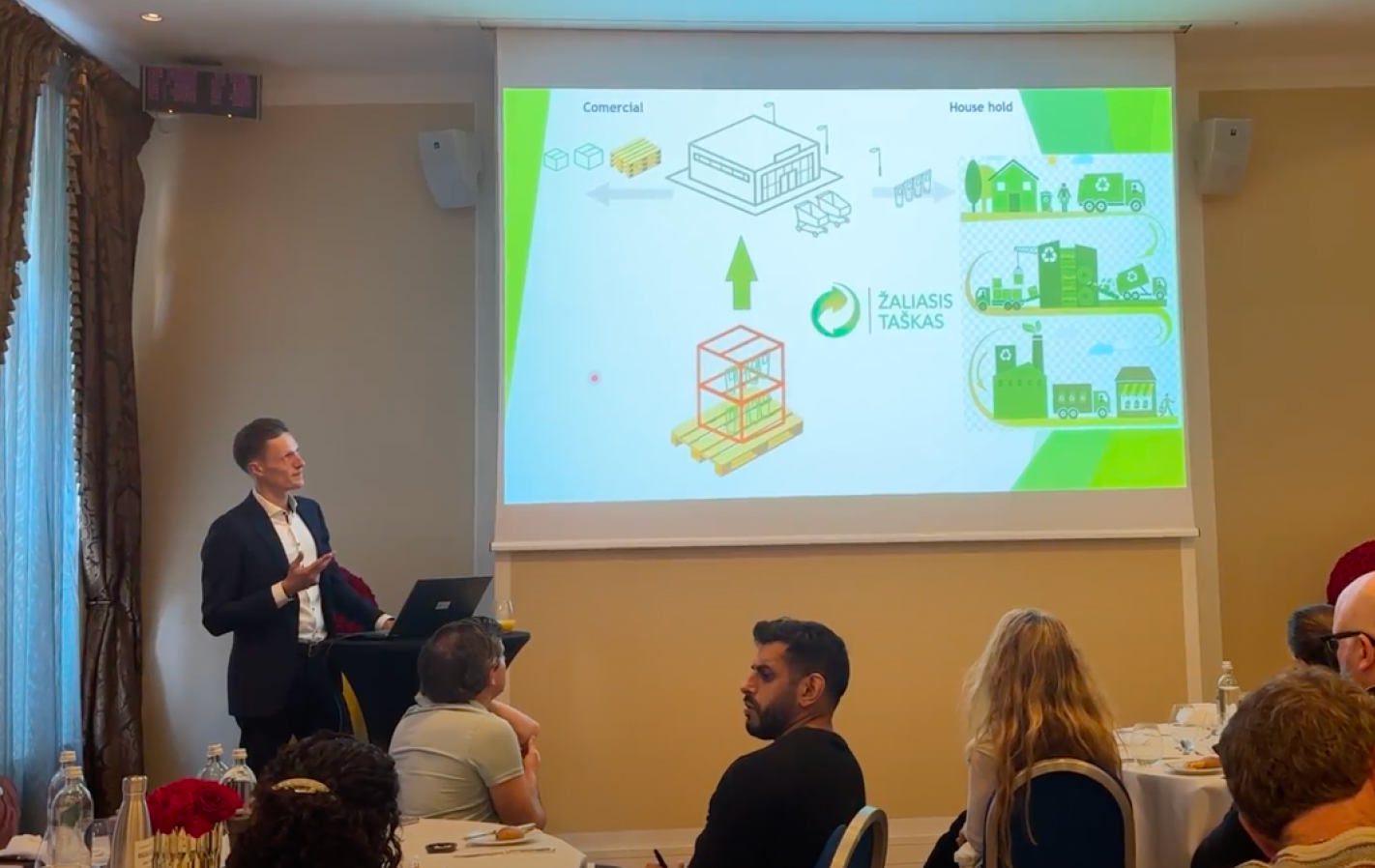
The technical expedition continued in Vilnius, Lithuania, to explore the design, operation and performance of a much younger system. This provided a unique insight for jurisdictions exploring EPR, DRS and refill systems in the US and other European countries to consider what is possible and the speed of implementation, bringing new facilities and infrastructure online.
VšĮ Žaliasis taškas (GreenDot Lithuania), has been managing producer’s responsibility for most types of end-of-life packaging since 2001. On behalf of its members, the organization manages the entire recovery process including the design, management, monitoring, improvement, and financing of collection and recovery infrastructure and operations. It also leads in communication and consumer awareness. In 2016, the EPR business model fundamentally changed with the introduction of DRS.
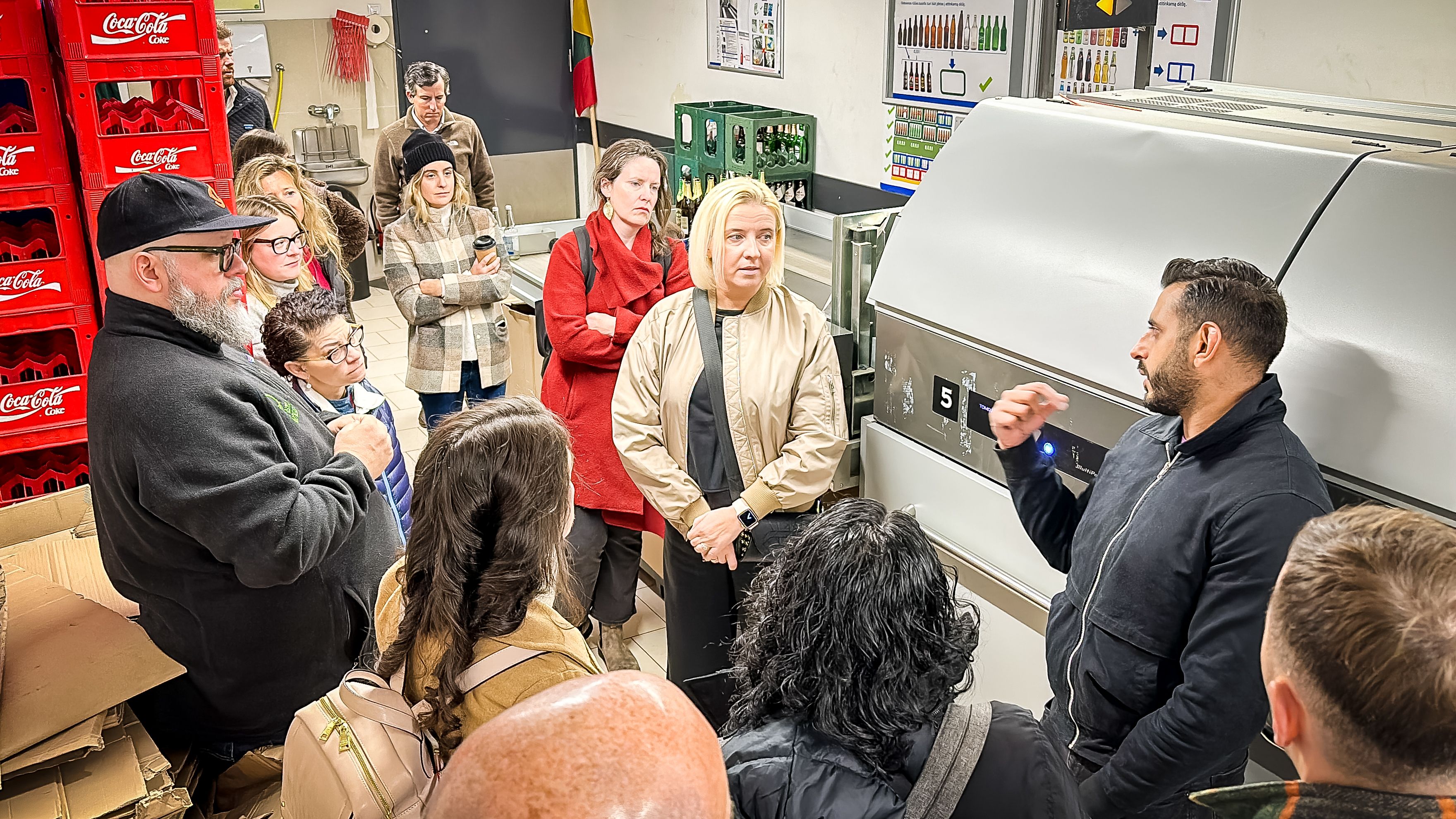
On the final day of the EPR+DRS+Refill Technical Expedition, major retailers showcased their adaptability to new legislation, with Lidl adopting a traditional approach by allocating floor space for Reverse Vending Machines (RVMs) in the entryway. Meanwhile, IKI took an innovative route, utilizing containerized satellite structures in parking lots, giving retailers flexibility in choosing models suitable for their customers. Compensation for space and material management is provided by the beverage container producer responsibility organization (PRO).

Next stop, Užstato Sistemos Administratorius (USAD), a non-profit operating since 2016, successfully designed and financed infrastructure for Lithuania’s DRS, achieving a 92% nationwide recovery rate, garnering high public satisfaction.
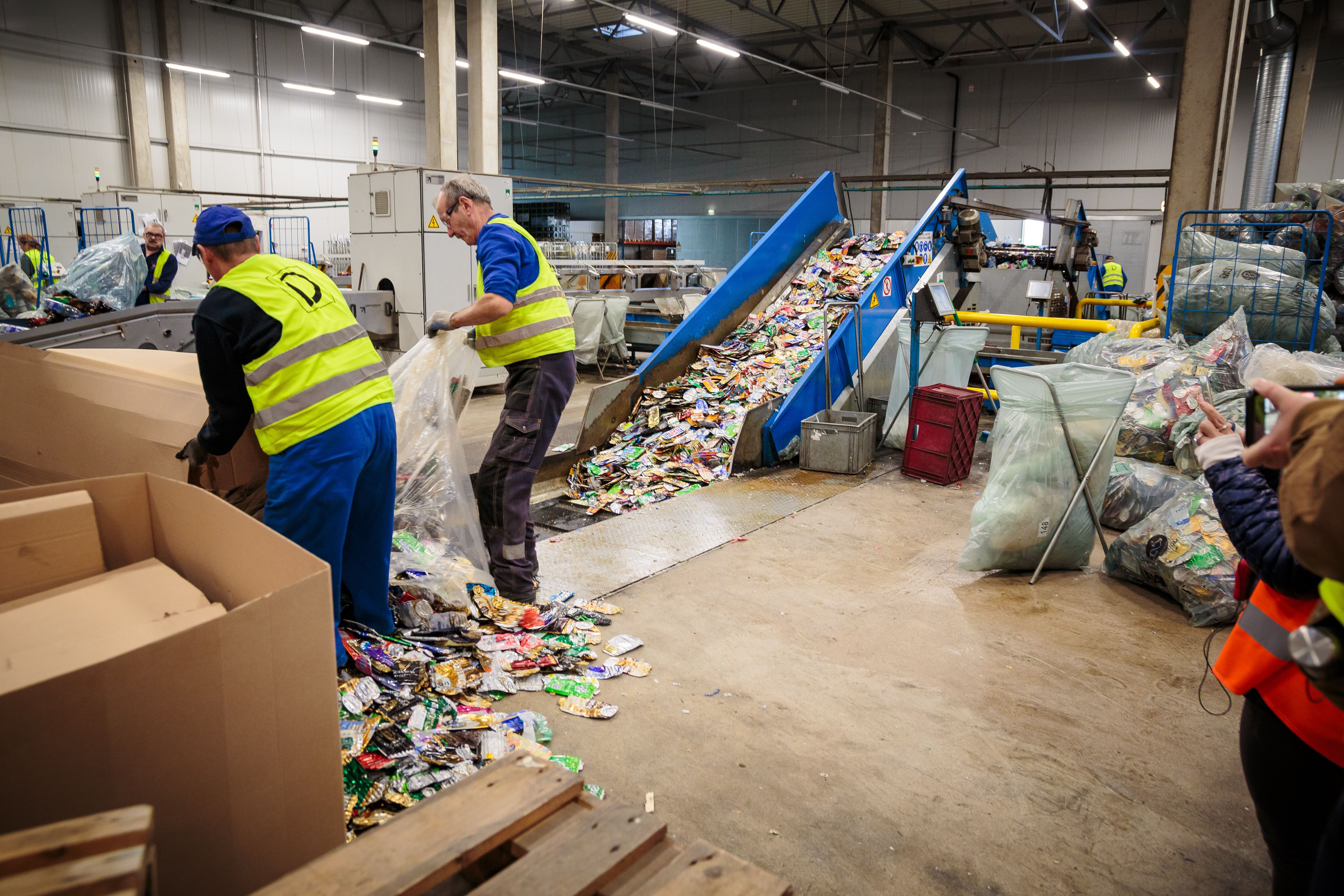
The expedition concluded with a closing reception at Trakai Island Castle to bring the focus full circle, and reflect on the importance of these systems for the health of water bodies and perseverance of a culture of environmental stewardship.
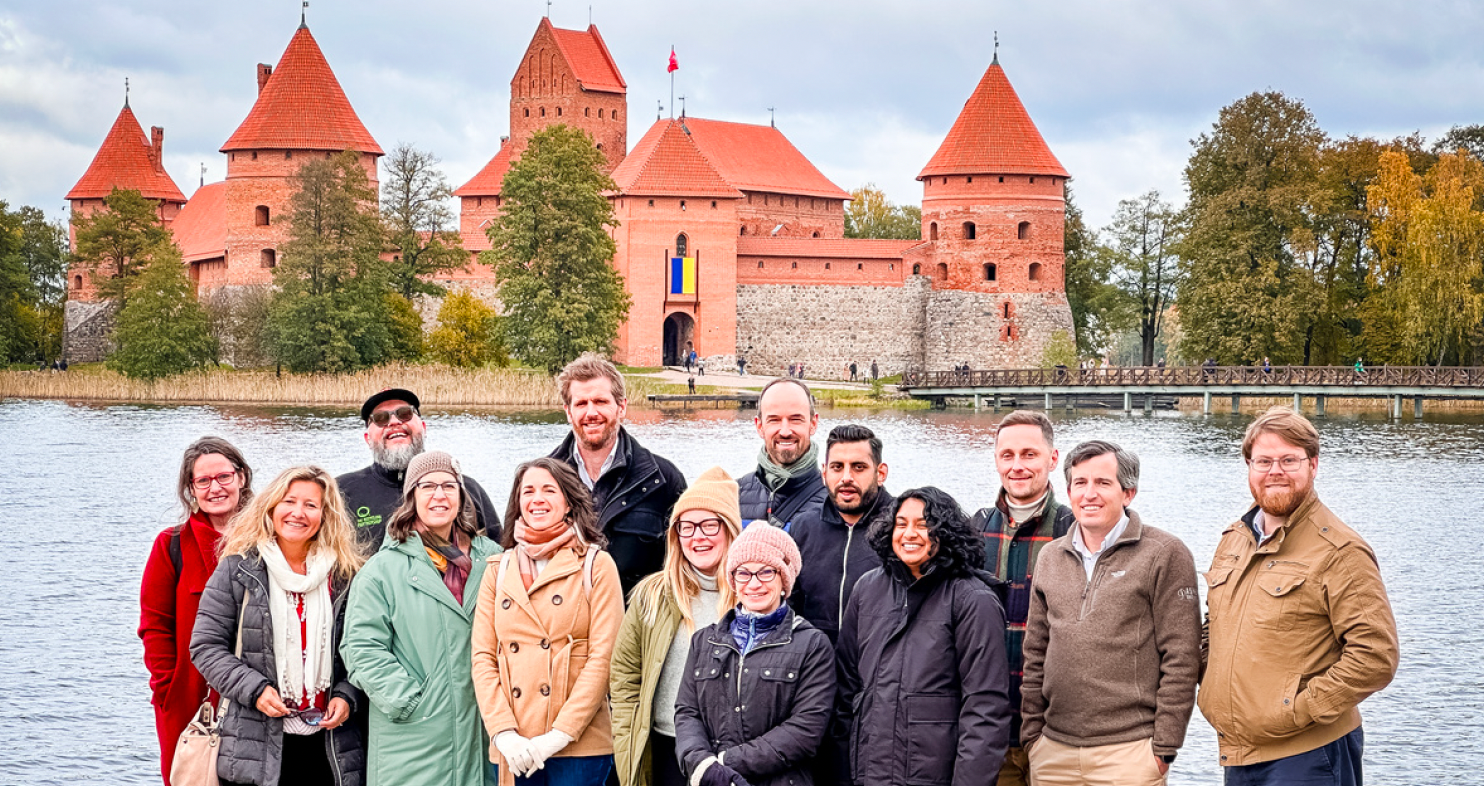
By visiting key organizations in Germany and Lithuania, the participants gained firsthand knowledge of Europe’s best performing packaging recovery systems powered by extended producer responsibility (EPR) in conjunction with deposit return schemes (DRS) and refill models. This immersive experience fostered collaboration, policy development, and a shared vision of achieving a circular economy and ending plastic pollution. Through continued efforts and multi-stakeholder engagement, Germany and Lithuania aim to set an example for the world in sustainable waste management and environmental conservation.
This technical expedition was sponsored by...

Ocean Plastics Leadership Network (OPLN) is an activist-to-industry impact network founded in 2019. OPLN is bringing together voices across industry, activism, and government to convene and drive engagement on policy and intervention concerning the global plastic pollution crisis.Through neutral and inclusive convenings, expeditions, development tracks, treaty dialogues, stakeholder education, and communications campaigns, the OPLN bridges divides, measures sentiment, and accelerates collaboration.

Atlantic Packaging is the largest privately held industrial packaging company in North America and a leader in sustainable packaging solutions. Atlantic specializes in end-of-line packaging systems and materials as well as converted paperboard solutions. Atlantic’s focus on innovation and technology has made it a market leader for customers requiring sustainable packaging options, packaging equipment, high-performance materials, warehousing, and distribution. A New Earth Project is Atlantic’s hallmark initiative to rid our oceans, lakes, and rivers of plastic pollution.

Green Dot Inc. is a one-stop shop for accelerating plastic recycling and creating value from plastic waste. We connect the dots between every step in the closed loop system: extended producer responsibility (EPR) management and services, collection and sorting systems, recycling facilities and connecting brands with quality recycled content to meet their goals. Our approach is founded on more than 30 years of experience, a passion for measurable change, and problem-solving to meet unique community needs. We connect brand partners with opportunities to meet commitments, serve communities and drive change at scale.